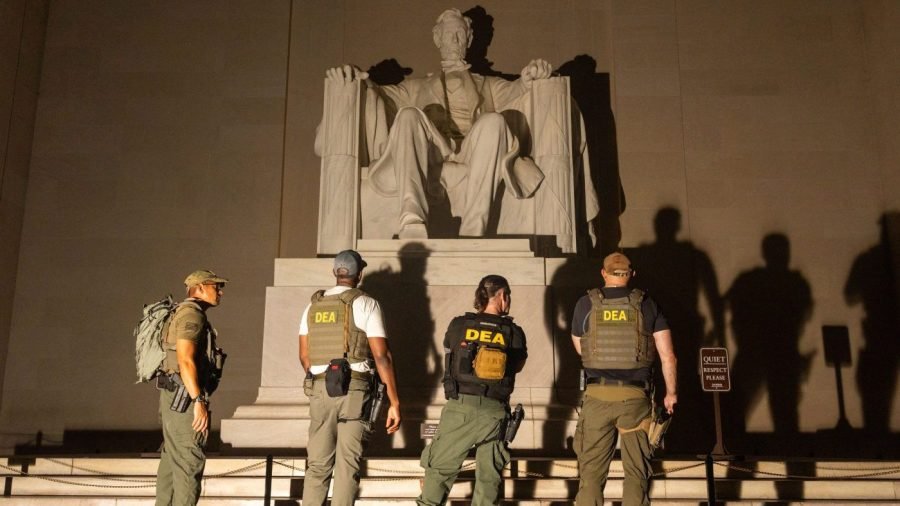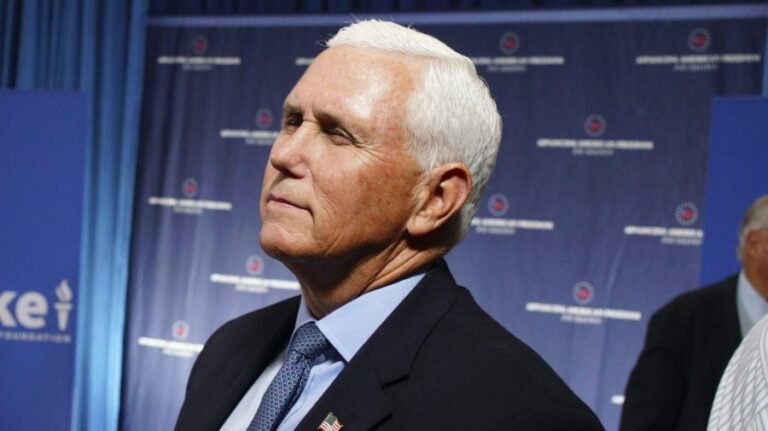
With summer break in the rearview, I have been reflecting on our family adventures — you know, before the kids grow up and take away my car keys.
This past Independence Day, I hauled them to Fort McHenry in Baltimore. Patriotic? Check. Teachable moment? Check. It’s the exact spot where in Francis Scott Key wrote “The Star Spangled Banner” in 1814. (Technically, he was watching from a ship in the harbor, but close enough).
But history has a funny way of turning star-spangled field trips into something deeper and darker. While looking for some patriotic fife-and-drum nostalgia, I stumbled upon prison cells. They were dank, cramped and exactly the sort of place you’d never want to end up.
One of those cells, I learned, housed the grandson of Francis Scott Key — Frank Key Howard — during the Civil War.
Howard’s crime? Penning anti-Lincoln editorials in a Baltimore newspaper sympathetic to the Confederacy.
Yes, you read that right. Abraham Lincoln — Honest Abe, the Great Emancipator — locked up the grandson of the guy who wrote our national anthem. And not just anywhere, but at the very same fort celebrated in his grandfather’s song. History, it turns out, loves irony.
I write about modern politics — one could even say anti-Trump columns — so I couldn’t help but wonder: If even our most revered presidents bent or broke the rules when push came to shove, maybe this whole “strongman” thing is more American than we’d like to admit.
Lincoln was willing to break eggs to save the Union’s omelet. Maybe that’s the exact sort of thing Trump fans are signing up for.
Nor was Lincoln alone. Consider Franklin Delano Roosevelt, often considered the greatest president of the 20th century.
FDR didn’t just push the envelope — he turned it into confetti. He was elected to four terms in office, defying George Washington’s two-term precedent. He attempted to pack the Supreme Court, only relenting when the move backfired. And, of course, he was responsible for the internment of Japanese Americans — one of the most shameful episodes in U.S. history.
Despite all this, Roosevelt is viewed today as a great and transformational leader.
Lincoln and FDR, in their own ways, bulldozed norms, steamrolled institutions and stretched laws. And we admire them for it. Why? Because they got results.
In fairness, they confronted genuine, civilization-threatening emergencies. Lincoln saved the Union. FDR led the nation through the Depression and defeated Adolf Hitler and Nazi Germany.
Authoritarianism, in other words, can be tolerated — even celebrated — if it is a temporary act in the service of saving civilization.
But there are a lot of problems with granting this exception to the otherwise ironclad “follow the Constitution” pledge, including this one: Not all so-called “emergencies” are real.
Lincoln had to keep Maryland from seceding so Washington D.C. would not be surrounded by hostile Confederate states. That meant suspending the writ of habeas corpus and putting the squeeze on journalists like Francis Key Howard, First Amendment be damned.
FDR faced not one but two existential threats: an economic collapse that left a quarter of Americans unemployed and a world war that the U.S. was forced into when Japan bombed Pearl Harbor. This doesn’t excuse Japanese interment, but at least there was a genuine emergency to point to.
Now compare all that to President Trump. His “emergencies” are being used to build a partial border wall, suspend asylum claims, slap tariffs on imports and deploy the National Guard to U.S. cities.
Serious issues? Sure. Are these responding to existential threats? Not even close.
Take immigration. Securing the border is a legitimate priority. But framing migrant surges as an “invasion” requiring emergency powers is laughable when stacked against, say, the Confederacy or Nazi Germany. (Note that a federal appeals court just ruled that the administration’s use of the Alien Enemies Act to deport alleged Venezuelan gang members was illegal, as there is “no invasion or predatory incursion.”)
Or look at crime in D.C. Yes, it’s a real problem. But an “emergency?” Hardly, especially when the city’s crime rate is at a 30-year low.
This is where the Trump comparison really starts to wobble. Lincoln and FDR bent the rules to save America. Trump bends the rules to advance himself.
That brings us to the darkest hypothetical. If Trump treats routine policy disputes as five-alarm fires, what happens if a real emergency shows up?
Lincoln suspended civil liberties, but preserved the Union. FDR pushed executive power to the brink, but preserved democracy. It somehow worked out, because the nation was resilient and those presidents had pure motives and possessed a steady character.
What would Trump do with the power he is given if a real emergency were actually to land on his desk?
Matt K. Lewis is a columnist, podcaster and author of the books “Too Dumb to Fail” and “Filthy Rich Politicians.”


